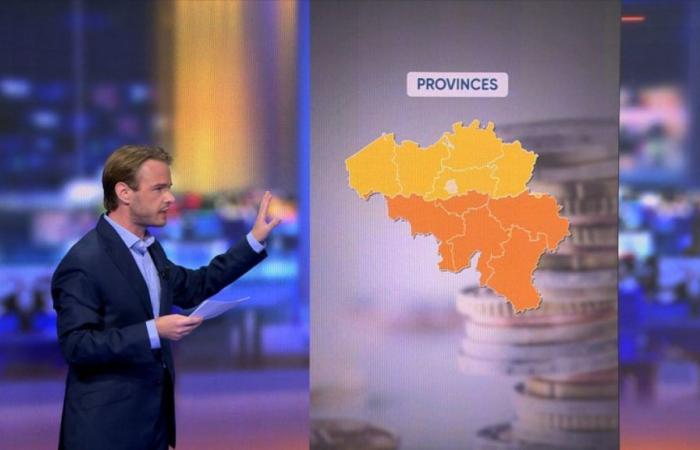It is often said that Belgian politics is very complex with its 7 parliaments, its 6 governments and its 5 levels of power. All these institutions have a cost. A study by Alexandre Lamfalussy and Jean Hindriks (UCLouvain) reveals that it is very high, especially in Wallonia.
The costs of our institutions are particularly high at two levels of power: municipalities and provinces. We don’t talk much about these 10 provinces that we all studied at school. They play a role in education, health and even culture.
There are 5 in Wallonia and 5 in Flanders, but the Walloon provinces spend much more: 306 euros per inhabitant, compared to 113 euros per inhabitant in Flanders.
For what ? Because the Walloon provinces employ many more staff. Nearly 9,000 full-time equivalents (8,916) on our side compared to nearly 5,000 in Flanders (4,904). In total, these provinces still represent 1.1 billion euros in terms of annual spending.
Big regional differences between ministers
Ministerial offices cost 300 million euros, much more than the planned budgets. There are many more ministers in Wallonia than in the north of the country. In Flanders, there are 9 ministers, while there are 21 in Wallonia and Brussels. Let us remember, however, that there are several Flemish ministers in Brussels.
The problem here is above all the distribution of skills. In Flanders, for example, there is only one Minister of Education. While, on the French-speaking side, there is a Minister of Education, a Minister of Higher Education and a Minister of Qualifications Training. It makes everything very complicated, it prevents progress and therefore it costs money, according to the study’s experts. That said, we know that the next Walloon governments will be organized differently.
Finally, there are a lot of deputies in Belgium: 592, or 51 deputies per 1 million inhabitants. It’s a lot ! We can compare with several countries in Europe: in most, the deputies are fewer in number in proportion (Spain, Italy, Netherlands or France). We still found two countries where there are even more in proportion: this is the case of Portugal and Luxembourg.






